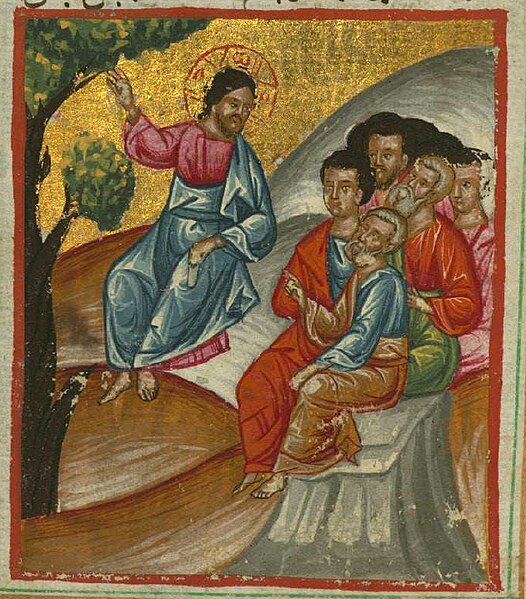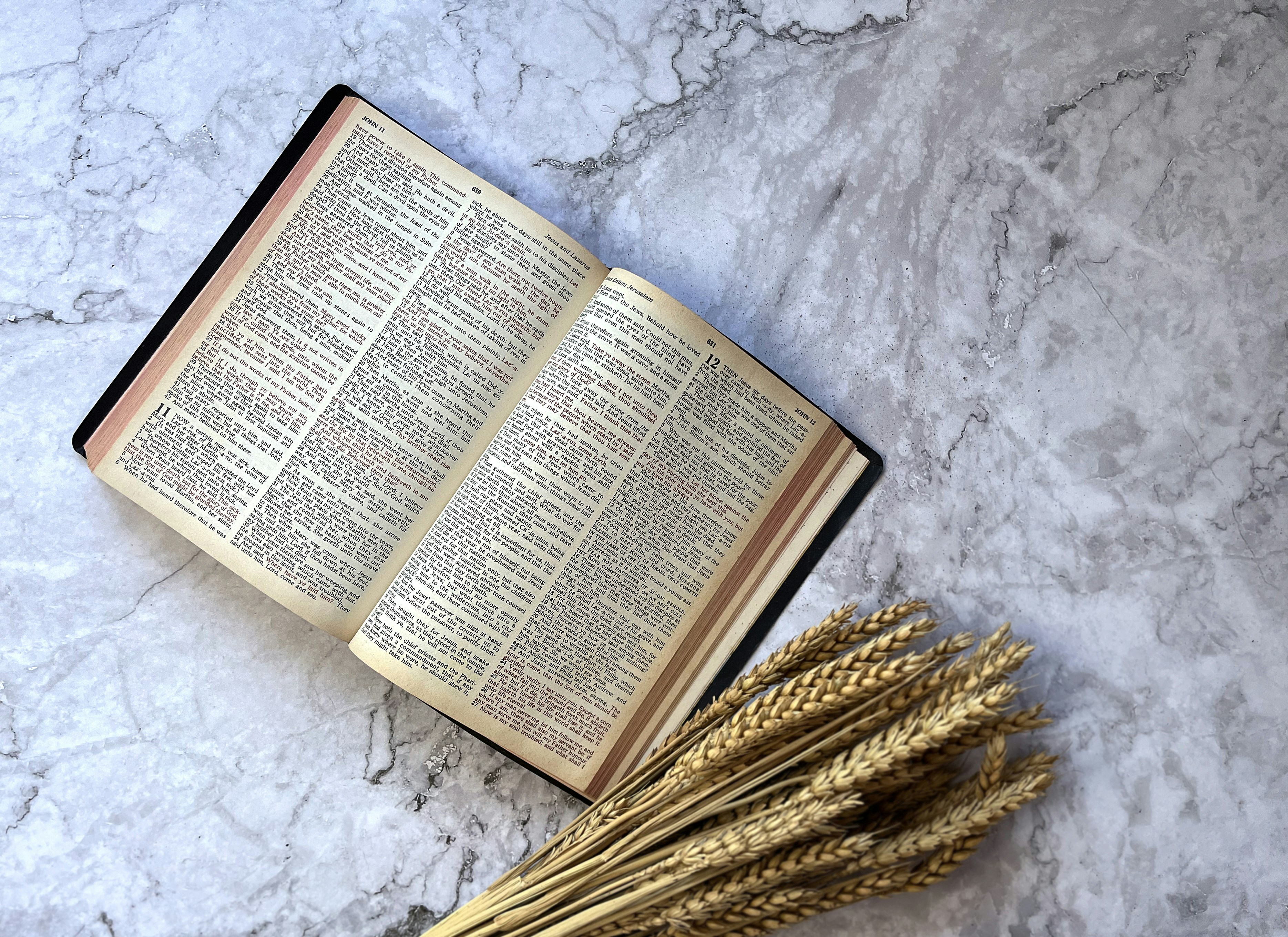The sacrament of marriage brings indescribable happiness and is so full of graces. Having children makes that happiness even more complete. Several family members and friends have questioned certain decisions my wife and I have made, such as moving to a small town, where the population of deer outnumbers the human population, and homeschooling our children.
I was born and raised in a large city, Lima, Peru, where I had my group of friends, played sports, and went to school. Many family members think it’s strange to live in a small town, be a stay at home dad, and to homeschool. To them, it’s like taking a step backward in life. No matter how much you try to explain it to them, they don’t understand it, especially when you start talking about doing God’s will, because they think that we have the ability to control everything.
Some have called me a hermit for living a different lifestyle from theirs. I don’t take it personally, on the contrary, I wish I had a cave. None of the points they argue make me more or less of a person. I enjoy the life that I have with God just where I am. Family or personal success does not consist in the thickness of our wallets or the number of our possessions, but rather about doing good and being able to help our children grow in faith. The goal is to get to heaven.
Saint John Vianney, whose feast we celebrate today, was a kind of hermit of the confessional. He spent between 12 and 15 hours a day hearing confessions, alone in a small room. We could even say that the confessional was like his monastery. In a similar way, I am a hermit of my home. God has placed me on this path where teaching my children comes first, making my home a monastery.
Above all, I seek to put God first, because walking with Him, we make better decisions, although we often have to set aside our own plans to follow His plan. We see an example of this in today’s Gospel. Jesus was saddened by the death of John the Baptist and wanted to go away to a deserted place by Himself. But when He saw that the crowd had followed him, He set aside His plans, His grief, and His desire for solitude. The passage says, “his heart was moved with pity for them” and He cured the sick and fed them.
In the same way, God seeks to take care of us, if only we will let him. Today’s Psalm says: “If only my people would hear me, and Israel walk in my ways, Quickly would I humble their enemies; against their foes I would turn my hand.” I invite you to listen to the Lord your God and to do whatever He asks of you, whether it be about where you live and how you teach your children or the ministries you support and the work you do.
As for me, I’m going to go hunt a deer in my small town to eat for dinner. See you later!
La felicidad del casamiento religioso, es algo tan indescriptible que llena a uno de gracia. Tener hijos hace que la felicidad sea aún más completa. La toma de decisiones junto con mi esposa ha causado algunos cuestionamientos de varios familiares y amigos, cómo ir a vivir a un pueblo pequeño, donde la población de venados es mayor a la de las personas y hacer la escuela en casa.
Donde nací y crecí era una ciudad grande, Lima-Perú, donde tenía mi grupo de amigos, hacía deporte, e iba a la escuela. Para muchos familiares es extraño vivir en un pueblo, ser papá en casa y hacer escuela en casa. Para ellos es cómo un retroceso para la vida. Por más que uno les explica, no llegan a entender el cambio, y menos cuando uno le habla de la voluntad de Dios, porque creen que el hombre tiene control de todas las cosas.
Algunos me han llamado ermitaño por tener una vida diferente a la suya. No lo he tomado a mal, más bien me gustaría tener una cueva. Cada uno de los puntos descritos no me hace ser una persona menos ni más. Disfruto tener una vida cómo la que tengo junto a Dios en el lugar donde estoy. El éxito familiar o personal no está en el grosor de la billetera o en los bienes que uno tenga sino más bien está en hacer el bien y poder ayudar a los hijos a crecer en la fe. La meta es llegar al cielo.
San Juan Vianney, cuya fiesta celebramos hoy, fue una especie de ermitaño del confesionario. Pasaba entre 12 y 15 horas diarias escuchando confesiones, allí solito en un cuartito. Hasta podríamos decir que el confesionario fue como su monasterio. De semejante forma, soy ermitaño de mi casa. Dios me ha puesto en este camino donde la enseñanza hacia mis hijos es lo primero, haciendo que mi casa sea un monasterio.
Por encima de todo, siempre busco poner a Dios primero, porque caminando con Él, las decisiones se hacen mejor, aunque muchas veces tenemos que dejar nuestros planes para hacer su plan. Vemos un ejemplo de eso en el Evangelio de hoy. Jesus estaba apenado por el fallecimiento de Juan el Bautista y quiso alejarse a un lugar a solas. Pero cuando vio que la muchedumbre lo había seguido, tuvo que dejar sus planes, dejar su pena, dejar su deseo de soledad. Dice que “se compadeció de ella” y curó a sus enfermos y les dio de comer.
De igual manera, Dios busca cuidarnos a nosotros, si tan solo lo dejamos. El Salmo de hoy dice: “¡Ojalá que mi pueblo me escuchara y cumpliera Israel con mis mandatos! Yo, al punto, humillaría a sus enemigos y sentirían mi mano sus contrarios.” Les invito a que escuchen al Señor tu Dios, y que cumplan con lo que Él les pida, ya sea donde viven y cómo enseñan a sus hijos o los ministerios que apoyas y el trabajo que tienes.
Por mi parte, voy a cazar un venado en mi pueblito para comer en la cena. ¡Hasta la próxima!
 Felix Urcia was born in Lima, Peru. He moved the U.S. to complete his college degree in Computer Science at Northern Kentucky University. He is passionate about his faith, his family, education and soccer. When he is not homeschooling and caring for his young children he enjoys personal programing projects and sports analysis. He and wife live in a small town in Western Michigan where they enjoy spending time with their five children.
Felix Urcia was born in Lima, Peru. He moved the U.S. to complete his college degree in Computer Science at Northern Kentucky University. He is passionate about his faith, his family, education and soccer. When he is not homeschooling and caring for his young children he enjoys personal programing projects and sports analysis. He and wife live in a small town in Western Michigan where they enjoy spending time with their five children.
Feature Image Credit: Jeremy Bishop, unsplash.com/photos/man-holding-red-light-flare-inside-cave-4PwRZXbXKxY
The views and opinions expressed in the Inspiration Daily blog are solely those of the original authors and contributors. These views and opinions do not necessarily represent those of Diocesan, the Diocesan staff, or other contributors to this blog.


 Kathryn Mulderink, MA, is married to Robert, Station Manager for Holy Family Radio. Together they have seven children (including Father Rob), and eleven grandchildren. She is President of the local community of Secular Discalced Carmelites and has published five books and many articles. Over the last 30 years, she has worked as a teacher, headmistress, catechist, Pastoral Associate, and DRE, and as a writer and voice talent for Catholic Radio. Currently, she serves the Church by writing and speaking, and by collaborating with various parishes and to lead others to encounter Christ and engage their faith. Her website is
Kathryn Mulderink, MA, is married to Robert, Station Manager for Holy Family Radio. Together they have seven children (including Father Rob), and eleven grandchildren. She is President of the local community of Secular Discalced Carmelites and has published five books and many articles. Over the last 30 years, she has worked as a teacher, headmistress, catechist, Pastoral Associate, and DRE, and as a writer and voice talent for Catholic Radio. Currently, she serves the Church by writing and speaking, and by collaborating with various parishes and to lead others to encounter Christ and engage their faith. Her website is 
 Tami Urcia is a midwestern gal from a large Catholic family. As a young adulthood she was a missionary in Mexico, where she studied theology and philosophy. After returning stateside bilingual, she gained a variety of work experience, traveled extensively and finished her Bachelor’s Degree at Brescia University. She loves organizing and simplifying things, watching her children play sports, deep conversations with close family and friends and finding unique ways to brighten others’ day with Christ’s love. She works full time at Diocesan in the Software Department and manages the Inspiration Daily reflections. She is also a contributing writer on
Tami Urcia is a midwestern gal from a large Catholic family. As a young adulthood she was a missionary in Mexico, where she studied theology and philosophy. After returning stateside bilingual, she gained a variety of work experience, traveled extensively and finished her Bachelor’s Degree at Brescia University. She loves organizing and simplifying things, watching her children play sports, deep conversations with close family and friends and finding unique ways to brighten others’ day with Christ’s love. She works full time at Diocesan in the Software Department and manages the Inspiration Daily reflections. She is also a contributing writer on 
 David Dashiell is a freelance author and editor in the Nashville, Tennessee area. He has three children, a degree in theology, and enjoys writing about philosophy, theology, culture, music, and comedy. You can find his personal blog, Serious Daydreams, on
David Dashiell is a freelance author and editor in the Nashville, Tennessee area. He has three children, a degree in theology, and enjoys writing about philosophy, theology, culture, music, and comedy. You can find his personal blog, Serious Daydreams, on 
 Former NPS Park Ranger, Catholic educator, and Youth Minister, Melissa Lucca now spends her days evangelizing family and neighbors as a stay-at-home mom. She holds an MA in Theology from the Augustine Institute and pursues personal study in her spare time. Melissa loves Ignatian Spirituality, Mother Mary, and rock climbing. If you don’t hear her and her kiddo laughing at home, then they are probably out on an adventure!
Former NPS Park Ranger, Catholic educator, and Youth Minister, Melissa Lucca now spends her days evangelizing family and neighbors as a stay-at-home mom. She holds an MA in Theology from the Augustine Institute and pursues personal study in her spare time. Melissa loves Ignatian Spirituality, Mother Mary, and rock climbing. If you don’t hear her and her kiddo laughing at home, then they are probably out on an adventure!
 Deanna G. Bartalini, M.Ed.; M.P.A., is a certified spiritual director, writer, speaker and content creator. The
Deanna G. Bartalini, M.Ed.; M.P.A., is a certified spiritual director, writer, speaker and content creator. The 





 Merridith Frediani loves words and is delighted by good sentences. She also loves Lake Michigan, dahlias, the first sip of hot coffee in the morning, millennials, and playing Sheepshead with her husband and three kids. She writes for Catholic Mom, Diocesan.com, and her local Catholic Herald. Her first book Draw Close to Jesus: A Woman’s Guide to Adoration is available at Our Sunday Visitor and Amazon. You can learn more at
Merridith Frediani loves words and is delighted by good sentences. She also loves Lake Michigan, dahlias, the first sip of hot coffee in the morning, millennials, and playing Sheepshead with her husband and three kids. She writes for Catholic Mom, Diocesan.com, and her local Catholic Herald. Her first book Draw Close to Jesus: A Woman’s Guide to Adoration is available at Our Sunday Visitor and Amazon. You can learn more at 
 Hailing from Nashville, Catherine is a graduate of Christendom College with a lifelong passion for words. Her love of writing and her Catholic Faith continue to shape her as a freelance editor, copywriter, and (aspiring) novelist, where she pursues her passions for the love and greater glory of God.
Hailing from Nashville, Catherine is a graduate of Christendom College with a lifelong passion for words. Her love of writing and her Catholic Faith continue to shape her as a freelance editor, copywriter, and (aspiring) novelist, where she pursues her passions for the love and greater glory of God.